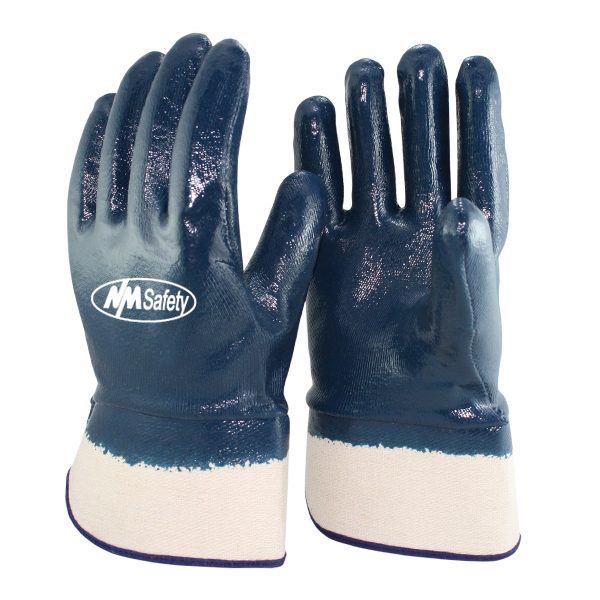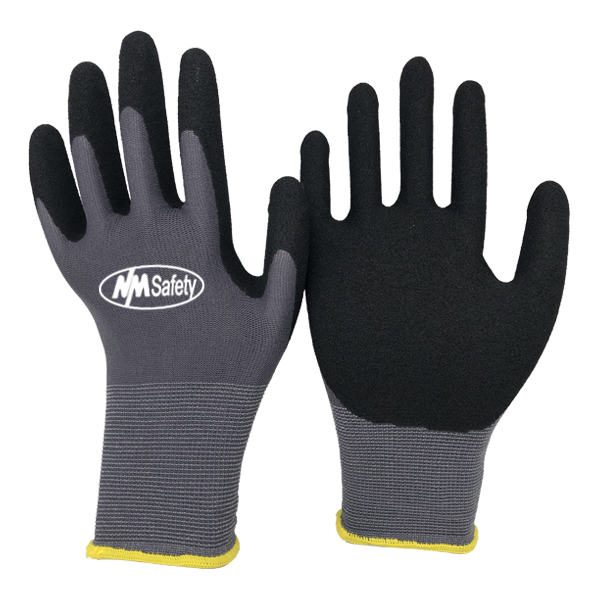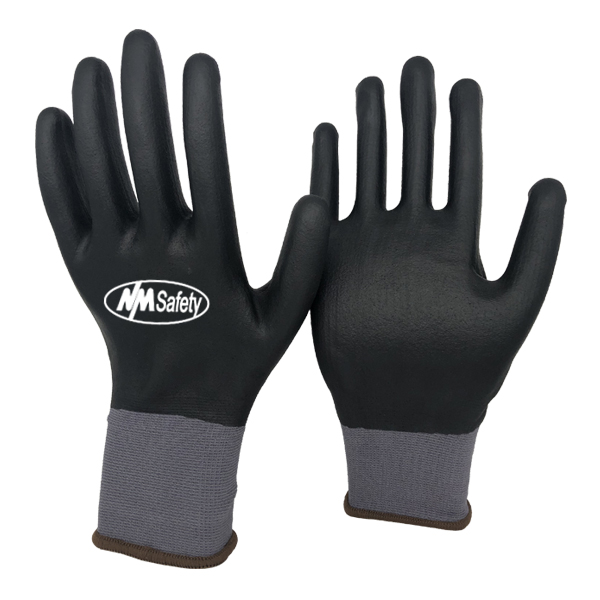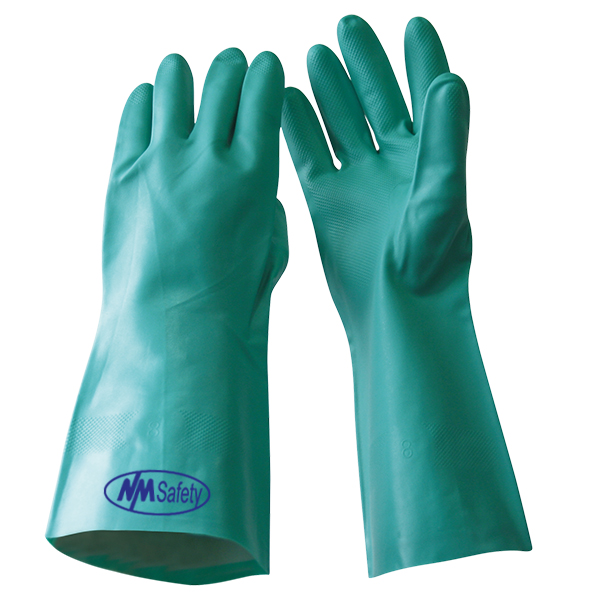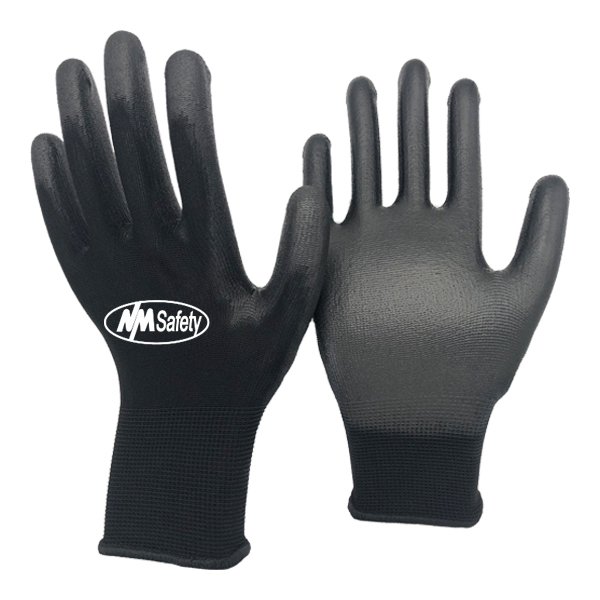What are Safety Gloves?
Safety gloves keep a worker's hands safe while performing their job. Gloves are made of different materials and protect against a variety of hazards. They don't wrap around the wrist and have an open-ended design that makes it easy to remove the glove if necessary. The glove's open-ended cuff also allows for ventilation, which improves the wearer's comfort.
Use of glove safety cuff:
In examples where workers have physical and chemical risks, safety gloves are vital to avoid these risks. Different cuff patterns work in the same way that various materials provide a guard against hazards. Safety cuffs, for example, should not be used with gloves designed to protect against chemical exposure since the open-ended design allows chemicals to enter the glove.
Heavy-duty gloves are usually used with leather gloves and commonly used with standard work gloves, such as those used in construction and industry. When worn in high-temperature conditions, safety cuffs prevent wrist abrasion and allow wrist ventilation. A laminated or rubberized safety cuff provides additional protection against cuts and other risks
Advantages of glove safety cuff:
Different advantages are the following:
Prevents punctures and needle injuries:
Safety gloves differ from regular hand gloves in that they provide additional protection that a typical safety glove cannot. Heavy-duty gloves have a tough and sturdy design that protects against punctures and needle injuries that could occur during work.
Prevents loss of fingers and hands:
Safety hand gloves are indestructible equipment for providing comprehensive hand safety. In a factory, there are several sophisticated types of machinery. For instance, if a worker comes into direct touch with such damaging parts, there is a potential that the worker will lose fingers or hands.
It is unavoidable to ensure and encourage their use in the manufacturing environment, especially when working with dangerous machinery. Heavy-duty gloves are a priority to avoid this hazardous circumstance.
Prevents cuts and burns:
Using safety gloves helps to reduce the risk of cuts and burns that are common in an industrial setting.
Heavy-duty gloves will also keep your hands safe whether you're working with chemicals or in extreme hot or cold temperatures, whether indoors or out.
What is a nitrile full coated Gloves Safety Cuff?
With a cotton-supported inner and a rubberized safety open top cuff, the Nitrile Full Coated Safety Cuff Glove is a great choice. Nitrile-coated gloves are fully covered with nitrile, making them waterproof. The nitrile coating is resistant to physical degradation and beneficial in wet and dry environments.
Features:
When we talk about the protection of the hand, today's customer prioritizes dexterity and ergonomics. It's great to be comfortable, but it's even better to be safe. Comfort should not come at the expense of safety.
These styles have a nitrile covering and offer a variety of features.
- It provides a superior grip on to hand while doing any work
- With increased abrasion resistance, puncture resistance, and durability
- Nitrile gloves are ideal for handling small parts, the automotive sector, metal stamping, construction, and general-purpose use.
- Nitrile gloves are single-use gloves created from synthetic rubber that mimics latex.
- They share some physical properties with natural rubber latex gloves.
- Nitrile gloves are more resistant to wear and tear and do not contain any latex protein.
- Nitrile gloves are more resistant to chemicals and punctures, according to tests.
- Nitrile-coated glovesare solvent resistant, which means they can handle oils and some acids, making them ideal for factories and other manufacturing applications.
- One of the primary reasons doctors choose nitrile gloves is to avoid allergic reactions.
- Nitrile gloves are easy to use and come in powdered (cornstarch powder) or unpowered varieties.
- They're known for their improved flexibility.
Benefits of Nitrile full coated gloves safety cuff:
There are many benefits discussed here that are following:
Protects from chemical burns and injuries:
The employer is responsible for providing workers with safety equipment to facilitate a healthy working system. There is a greater likelihood that a factory worker will expose to hazardous chemicals, and if a chemical falls on their palm when dealing chemicals, it can cause severe burns. However, we can avoid these incidences with the proper use of heavy-duty gloves.
Protection against temperature changes:
It was never simple to work in a sophisticated factory environment. The workplace is a challenging place to work because of a sequence of temperature variations.
Workers will be able to cope with such significant changes. They will be protected if they employ safety equipment. Working in such a setting might be intimidating unless you have the right tools.
Prevents absorption of hazardous substances:
When working in a worldly-wise factory setting, there is a great potential that one's hands will absorb some hazardous compounds. Which can have serious consequences; therefore, wearing appropriate safety hand gloves is a must to ensure total protection against such risks.
Tips to use and care for the nitrile full coated gloves safety cuff:
1) Make sure the gloves you're going to wear are clean and tear-resistant. If you're not pretty sure, you check with a supervisor or your senior assistant.
2) Disposable gloves should never be washed or reused.
3) make sure you obtain the proper fit gloves and are comfortable while using them.
4) Always have a replacement pair of gloves on hand if the current gloves are damaged or washed.
5) You make sure the gloves are free of tears, holes, cracks, or other damage. If you're working with chemicals, even a tiny hole might cause serious injury to your hands.
Conclusion:
"Prevention is preferable to cure." If you work in a job that puts a strain on your hands, you should have this in your survival kit since it protects your hands from contamination and infection. Consider it obligatory safety equipment in your backpack, similar to food and medications. Trust me when I say that it will keep your hands safe and save your life and the lives of others. You may get it from GLOVESNSTUFF for a reasonable price.






